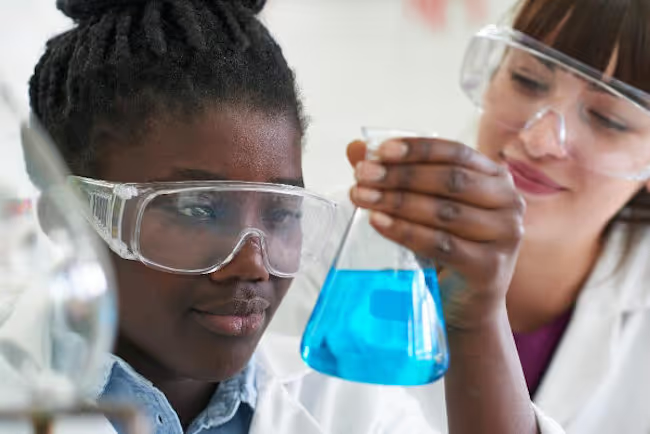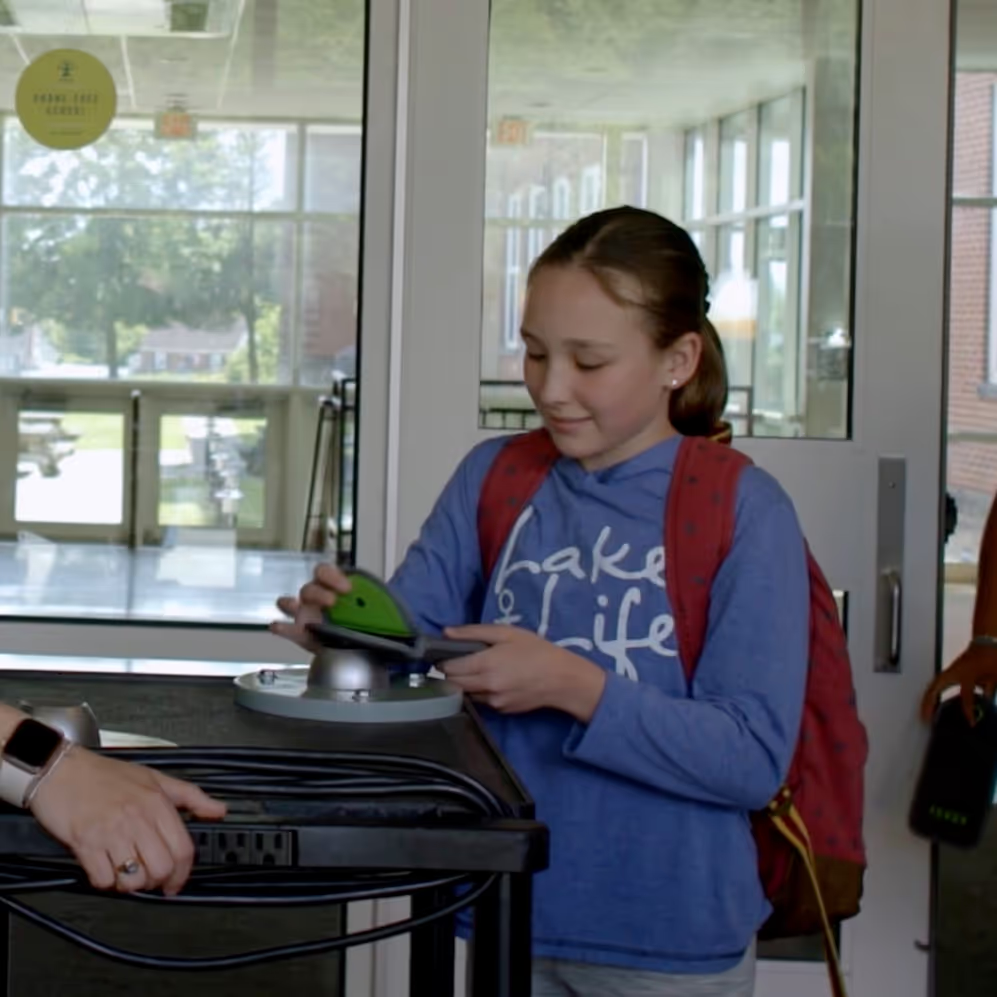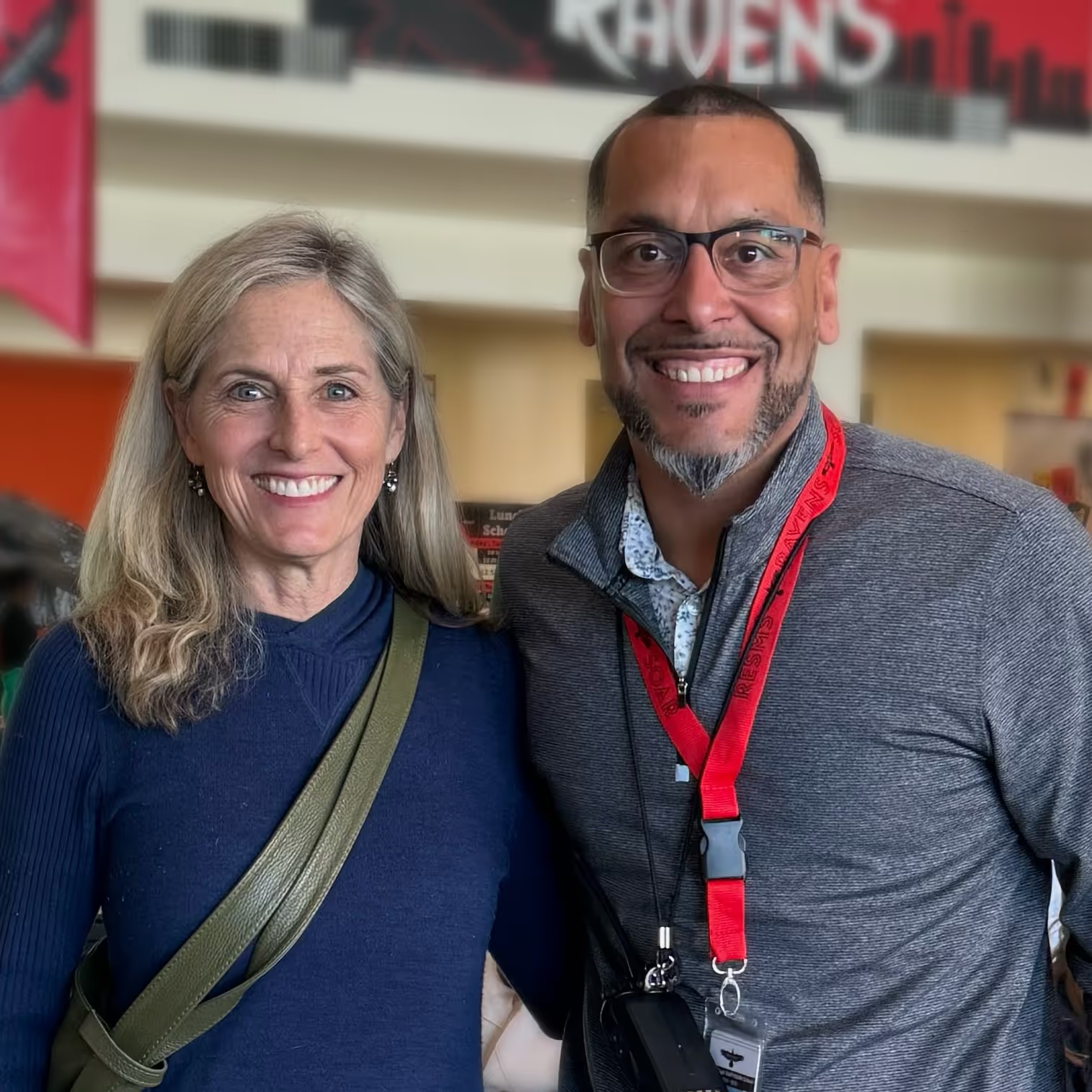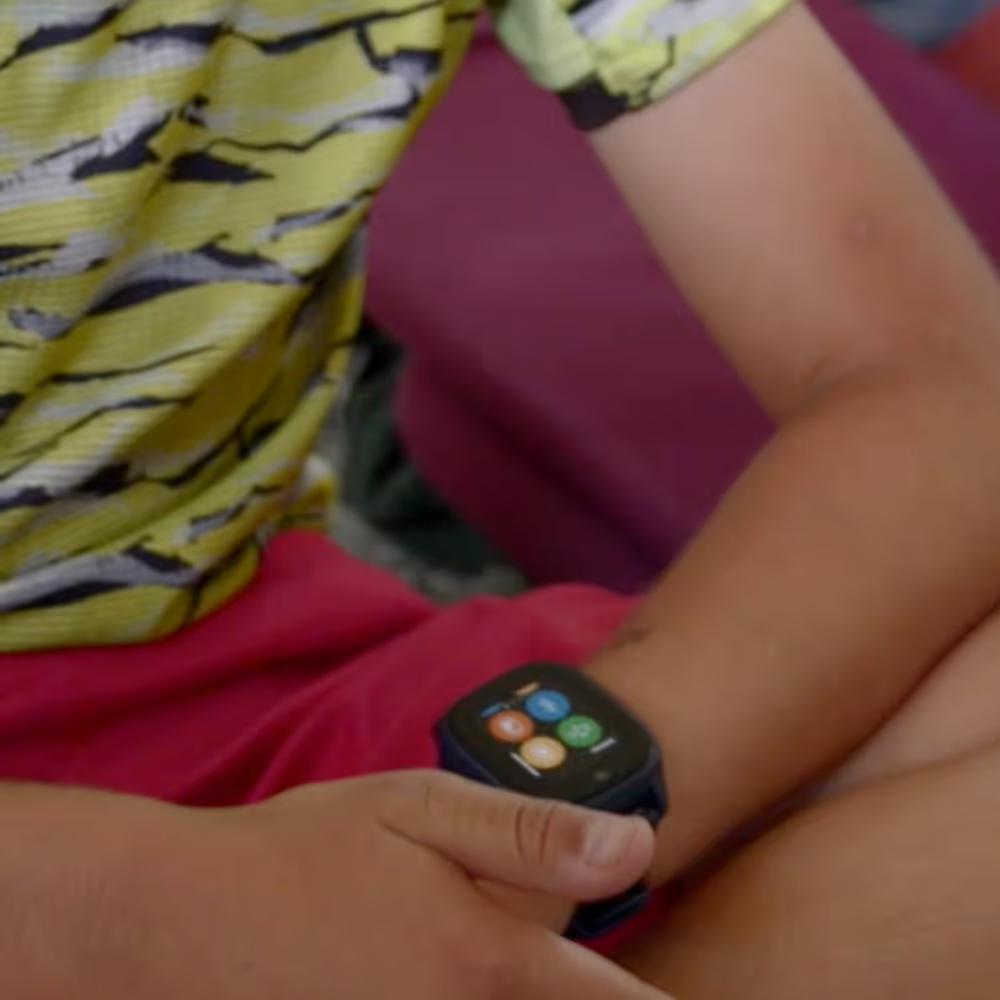


One of my goals in writing weekly Tech Talk Tuesdays has been to help young people, through conversations, get more exposure to science in ways that are relatable and interesting to them — whether that’s about screen time, mental health, or other topics. That is also why I included so much science throughout Screenagers and Screenagers NEXT CHAPTER.
Now with COVID-19, science is particularly pertinent and applicable to all of our lives. Talking about how science and our tech revolution, including our phones, is making a difference is now more important than ever! One silver lining of what is happening now could be that many more young people might be inspired to work in science and health fields.
My interest in doing science began after college when I landed a job working in a biophysics lab at the National Institutes of Health in DC. I was researching how to improve the vaccine for whooping cough. The daily routine in a laboratory of doing experiments, having many of them fail, and then thinking through the possible problems and trying again, helped me see the ongoing creativity and grit that research takes. I was hooked.
In medical school, another research project I did was spending a year understanding how tuberculosis, an airborne disease, was spreading among the homeless in San Francisco, with the hope of using that information to stop transmission. I worked with a researcher who was able to “DNA fingerprint” the bacteria so he could tell who got infected with the same strains. (Years later that researcher became my husband.) I worked in the San Francisco Public Health Department, interviewing people who had been infected with the same strain of bacteria to find out where the germ was spreading so we could interrupt its spread. Basically, this is what is now getting discussed as one way to fight COVID-19 and is called “contact tracing.” Here is one of the New England Journal of Medicine’s papers that came out of that work.
Now fast forward, here we are with COVID-19, but now we have amazing smartphones that can significantly help our efforts. Phones are going to make the type of work I was doing around tuberculosis — contact tracing — much more effective. Being very careful to maintain confidentiality, cell phones will be used such that when a person becomes ill, the contact tracer would see all the people the patient came in contact with using data from the patient’s cell phone. The contact tracer, using careful guidelines, will notify people that they were exposed to a COVID-19 patient so they can get tested and also stay out of contact with others. In this way, we can stop the spread while not needing to shut down everything. This will be so helpful.
My husband, Peter, is pursuing another way to use the power of smartphones to help in the pandemic. He has spent over thirty years working in global health, and his current focus is creating tech tools that can aid low-income countries in fighting diseases. Right now, he is passionate about using mobile phones to help people track their cough and eventually perhaps even diagnose its cause from the sound. This would be used to help fight COVID-19 and other respiratory illnesses.
Ultimately phones can be powerful tools in helping people, providers and public health systems interrupt disease transmission —just one of the thousands of ways tech is helping during this pandemic.
Let’s help our young people get informed and spark their interest. We need researchers, we need people to work in public health, we need biotech engineers, we need loving health care providers of all types, and the list goes on.
Science is the guiding light in all that I do, from staying on top of the latest advances to best care for the patients I see in the clinic, to researching the impact of screen time, to researching mental health topics and much more. It is all about being evidenced-based. I like the way that Bono once referred to himself as a “factivist.”
We NOW have a way for people to host online events during this time. We still strongly believe in the coming together as a group model for showing both movies, so these temporary online events will be here only while the social distancing is in place.
Click here if you are interested in hosting an online screening for your community.
Click here if you want to attend an online screening. (For those of you have already told us last week you want to attend an online screening, we will email you in a few days with signups.)
Learn more about showing our movies in your school or community!
Join Screenagers filmmaker Delaney Ruston MD for our latest Podcast

Learn more about our Screen-Free Sleep campaign at the website!
Our movie made for parents and educators of younger kids
Learn more about showing our movies in your school or community!
Learn more about showing our movies in your school or community!
Join Screenagers filmmaker Delaney Ruston MD for our latest Podcast

Learn more about our Screen-Free Sleep campaign at the website!
Our movie made for parents and educators of younger kids
Join Screenagers filmmaker Delaney Ruston MD for our latest Podcast
As we’re about to celebrate 10 years of Screenagers, we want to hear what’s been most helpful and what you’d like to see next.
Please click here to share your thoughts with us in our community survey. It only takes 5–10 minutes, and everyone who completes it will be entered to win one of five $50 Amazon vouchers.
One of my goals in writing weekly Tech Talk Tuesdays has been to help young people, through conversations, get more exposure to science in ways that are relatable and interesting to them — whether that’s about screen time, mental health, or other topics. That is also why I included so much science throughout Screenagers and Screenagers NEXT CHAPTER.
Now with COVID-19, science is particularly pertinent and applicable to all of our lives. Talking about how science and our tech revolution, including our phones, is making a difference is now more important than ever! One silver lining of what is happening now could be that many more young people might be inspired to work in science and health fields.
My interest in doing science began after college when I landed a job working in a biophysics lab at the National Institutes of Health in DC. I was researching how to improve the vaccine for whooping cough. The daily routine in a laboratory of doing experiments, having many of them fail, and then thinking through the possible problems and trying again, helped me see the ongoing creativity and grit that research takes. I was hooked.
In medical school, another research project I did was spending a year understanding how tuberculosis, an airborne disease, was spreading among the homeless in San Francisco, with the hope of using that information to stop transmission. I worked with a researcher who was able to “DNA fingerprint” the bacteria so he could tell who got infected with the same strains. (Years later that researcher became my husband.) I worked in the San Francisco Public Health Department, interviewing people who had been infected with the same strain of bacteria to find out where the germ was spreading so we could interrupt its spread. Basically, this is what is now getting discussed as one way to fight COVID-19 and is called “contact tracing.” Here is one of the New England Journal of Medicine’s papers that came out of that work.
Now fast forward, here we are with COVID-19, but now we have amazing smartphones that can significantly help our efforts. Phones are going to make the type of work I was doing around tuberculosis — contact tracing — much more effective. Being very careful to maintain confidentiality, cell phones will be used such that when a person becomes ill, the contact tracer would see all the people the patient came in contact with using data from the patient’s cell phone. The contact tracer, using careful guidelines, will notify people that they were exposed to a COVID-19 patient so they can get tested and also stay out of contact with others. In this way, we can stop the spread while not needing to shut down everything. This will be so helpful.
My husband, Peter, is pursuing another way to use the power of smartphones to help in the pandemic. He has spent over thirty years working in global health, and his current focus is creating tech tools that can aid low-income countries in fighting diseases. Right now, he is passionate about using mobile phones to help people track their cough and eventually perhaps even diagnose its cause from the sound. This would be used to help fight COVID-19 and other respiratory illnesses.
Ultimately phones can be powerful tools in helping people, providers and public health systems interrupt disease transmission —just one of the thousands of ways tech is helping during this pandemic.
Let’s help our young people get informed and spark their interest. We need researchers, we need people to work in public health, we need biotech engineers, we need loving health care providers of all types, and the list goes on.
Science is the guiding light in all that I do, from staying on top of the latest advances to best care for the patients I see in the clinic, to researching the impact of screen time, to researching mental health topics and much more. It is all about being evidenced-based. I like the way that Bono once referred to himself as a “factivist.”
We NOW have a way for people to host online events during this time. We still strongly believe in the coming together as a group model for showing both movies, so these temporary online events will be here only while the social distancing is in place.
Click here if you are interested in hosting an online screening for your community.
Click here if you want to attend an online screening. (For those of you have already told us last week you want to attend an online screening, we will email you in a few days with signups.)
Sign up here to receive the weekly Tech Talk Tuesdays newsletter from Screenagers filmmaker Delaney Ruston MD.
We respect your privacy.
One of my goals in writing weekly Tech Talk Tuesdays has been to help young people, through conversations, get more exposure to science in ways that are relatable and interesting to them — whether that’s about screen time, mental health, or other topics. That is also why I included so much science throughout Screenagers and Screenagers NEXT CHAPTER.
Now with COVID-19, science is particularly pertinent and applicable to all of our lives. Talking about how science and our tech revolution, including our phones, is making a difference is now more important than ever! One silver lining of what is happening now could be that many more young people might be inspired to work in science and health fields.
My interest in doing science began after college when I landed a job working in a biophysics lab at the National Institutes of Health in DC. I was researching how to improve the vaccine for whooping cough. The daily routine in a laboratory of doing experiments, having many of them fail, and then thinking through the possible problems and trying again, helped me see the ongoing creativity and grit that research takes. I was hooked.
In medical school, another research project I did was spending a year understanding how tuberculosis, an airborne disease, was spreading among the homeless in San Francisco, with the hope of using that information to stop transmission. I worked with a researcher who was able to “DNA fingerprint” the bacteria so he could tell who got infected with the same strains. (Years later that researcher became my husband.) I worked in the San Francisco Public Health Department, interviewing people who had been infected with the same strain of bacteria to find out where the germ was spreading so we could interrupt its spread. Basically, this is what is now getting discussed as one way to fight COVID-19 and is called “contact tracing.” Here is one of the New England Journal of Medicine’s papers that came out of that work.
Now fast forward, here we are with COVID-19, but now we have amazing smartphones that can significantly help our efforts. Phones are going to make the type of work I was doing around tuberculosis — contact tracing — much more effective. Being very careful to maintain confidentiality, cell phones will be used such that when a person becomes ill, the contact tracer would see all the people the patient came in contact with using data from the patient’s cell phone. The contact tracer, using careful guidelines, will notify people that they were exposed to a COVID-19 patient so they can get tested and also stay out of contact with others. In this way, we can stop the spread while not needing to shut down everything. This will be so helpful.
My husband, Peter, is pursuing another way to use the power of smartphones to help in the pandemic. He has spent over thirty years working in global health, and his current focus is creating tech tools that can aid low-income countries in fighting diseases. Right now, he is passionate about using mobile phones to help people track their cough and eventually perhaps even diagnose its cause from the sound. This would be used to help fight COVID-19 and other respiratory illnesses.
Ultimately phones can be powerful tools in helping people, providers and public health systems interrupt disease transmission —just one of the thousands of ways tech is helping during this pandemic.
Let’s help our young people get informed and spark their interest. We need researchers, we need people to work in public health, we need biotech engineers, we need loving health care providers of all types, and the list goes on.
Science is the guiding light in all that I do, from staying on top of the latest advances to best care for the patients I see in the clinic, to researching the impact of screen time, to researching mental health topics and much more. It is all about being evidenced-based. I like the way that Bono once referred to himself as a “factivist.”
We NOW have a way for people to host online events during this time. We still strongly believe in the coming together as a group model for showing both movies, so these temporary online events will be here only while the social distancing is in place.
Click here if you are interested in hosting an online screening for your community.
Click here if you want to attend an online screening. (For those of you have already told us last week you want to attend an online screening, we will email you in a few days with signups.)

This year, millions of students are experiencing a major shift: school days without phones, smartwatches, or other personal devices. Today we explore the wins, hurdles, and solutions helping schools succeed. We also share our resources that you can use to support technology policy changes in your schools.
READ MORE >
I recently sat down with middle school principal Zach at his school in Washington State. We talked about the challenges Zach and his team faced in his early years as principal when students used phones during school, and how he brought about a powerful transformation by having phones and smartwatches put away in locked pouches for the whole school day. In today’s blog, to raise awareness of the challenges, I share five real examples from Zach of the troubling ways students use phones at school to be unkind.
READ MORE >
It is with great pleasure that I share with you today a piece that Lisa Tabb and I did for Jonathan Haidt's (Author of The Anxious Generation) and researcher Zack Rausch's Substack blog — After Babel. In it, we discuss the rise in use of smartwatches in elementary schools and the problems they pose. There is a real cost to arming (pun intended) our kids with these devices and sending them to school. Now is the time to stop and fully address this topic and ensure that schools become smartwatch and phone-free.
READ MORE >for more like this, DR. DELANEY RUSTON'S NEW BOOK, PARENTING IN THE SCREEN AGE, IS THE DEFINITIVE GUIDE FOR TODAY’S PARENTS. WITH INSIGHTS ON SCREEN TIME FROM RESEARCHERS, INPUT FROM KIDS & TEENS, THIS BOOK IS PACKED WITH SOLUTIONS FOR HOW TO START AND SUSTAIN PRODUCTIVE FAMILY TALKS ABOUT TECHNOLOGY AND IT’S IMPACT ON OUR MENTAL WELLBEING.
